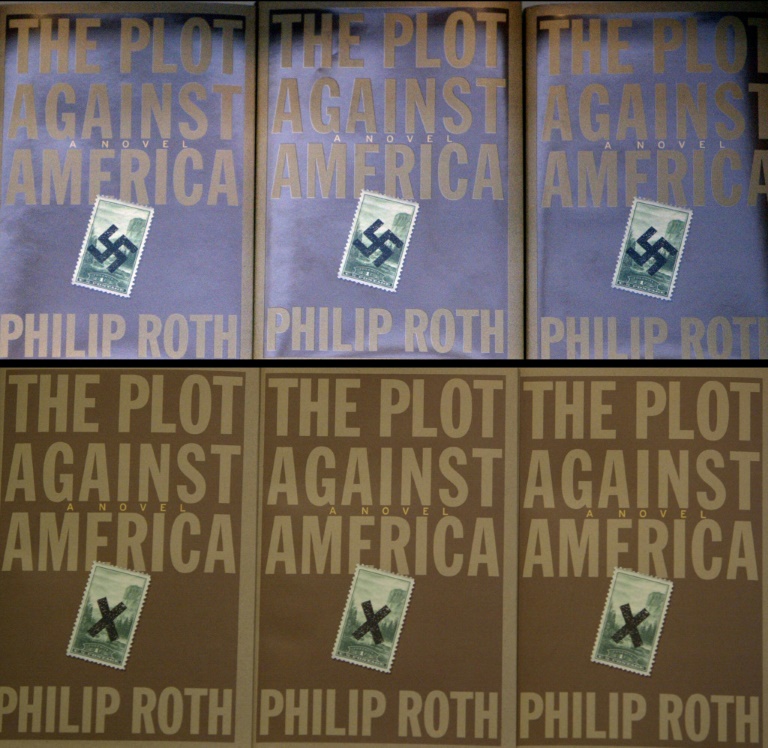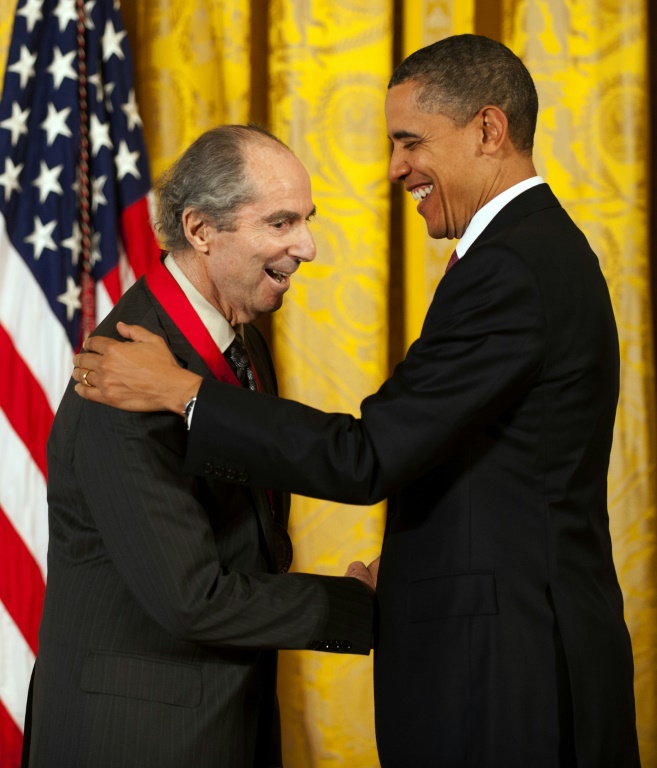
Philip Roth's 2004 novel "The Plot Against America" imagines Charles Lindbergh, an aviator with pro-Nazi leanings, defeating Franklin D. Roosevelt in 1940.(Photo: AFP)
If Philip Roth is credited with a damning premonition of the Trump presidency in his 2004 novel "The Plot Against America," the late novelist was profoundly shocked by the reality of 21st century US politics.
Roth announced his retirement four years before Trump was elected president, but for many on the left his 2004 novel was a prescient warning of what has befallen the most powerful democracy on Earth.
In 2016, US voters elected Donald Trump, who has been accused of emboldening white supremacist groups, whose hard-line immigration policies have denigrated entire communities and who initially insisted anti-racism protesters were equally to blame for deadly violence at a neo-Nazi rally in Virginia.
Trump's tenure thrust back into the public eye Roth's 2004 novel that imagined Charles Lindbergh, an aviator with pro-Nazi leanings, defeating Franklin D. Roosevelt in 1940.
Told through the eyes of a Jewish family living in Newark, where Roth himself grew up, the novel paints a picture of an America that gives in to its extremist and anti-Semitic vices, with Jews deported to the Midwest and fleeing to Canada.
Roth, who as a child admired Lindbergh's exploits and was born during the worst of American anti-Semitism in the 1930s, downplayed any parallel with Trump, saying that while Lindbergh was racist, he was also a hero for his trans-Atlantic flight.
"Charles Lindbergh, in life as in my novel, may have been a genuine racist and an anti-Semite and a white supremacist sympathetic to fascism, but he was also... an authentic American hero," he told The New York Times in January.
"Trump, by comparison, is a massive fraud, the evil sum of his deficiencies, devoid of everything but the hollow ideology of a megalomaniac."
Not surprisingly, the US president made no public comment Wednesday on the passing of a man widely considered the last great, white, male American novelist, who together with Saul Bellow, Norman Mailer and John Updike helped define what it meant to be American in the latter half of the 20th century.
Jacques Berlinerblau, a professor of Jewish civilization at Georgetown University who has taught Roth texts for 25 years, said the literary giant understood that "America is given to paroxysms of craziness."
Roth's 1998 novel "I Married a Communist" is told against the backdrop of McCarthyism. Berlinerblau said he was also very aware of America's troubling streak of extremism, be it that of the puritans or of Christian evangelicals.
'21st-century catastrophe'
"America is this laboratory where crazy things happen and good writers try to describe it, they don't try to politicize it," Berlinerblau told AFP.

For decades before Trump, Roth was a fierce critic of a number of US leaders, says biographer and friend Blake Bailey.
Of Dwight Eisenhower, the US general turned statesman, "he would say how did this guy become president? He can hardly read English," Bailey said. He loathed Richard Nixon, satirizing him in a lacerating 1973 address to the nation.
Bailey said Roth called Ronald Reagan, venerated by today's Republican Party, "a president with the soul of a soap opera grandmother and the intelligence of a high school senior in a June Allyson musical."
Of America's more recent presidents, he alone admired Barack Obama, from whom he received the National Humanities Medal in 2010.
As caustic as he may have been, Roth had "a deep belief in America," that the country would set itself right, said Berlinerblau. "I don't think he had given up on America," the professor added.
But even so, he was profoundly shocked by the rise of Trump.
"No one I know of has foreseen an America like the one we live in today," Roth told the Times back in January.
He called it a "21st-century catastrophe" and "the most debasing of disasters" -- made worse, not at the hands of "an Orwellian Big Brother but in the ominously ridiculous... figure of the boastful buffoon."
"I think Philip was deeply shocked and dismayed by the way things were going after the election," admitted Bailey.
"His faith may have wavered a little bit," he added. "Not his faith in the American way of life and form of government... but whether this American way of life and form of government will survive under the current regime."


